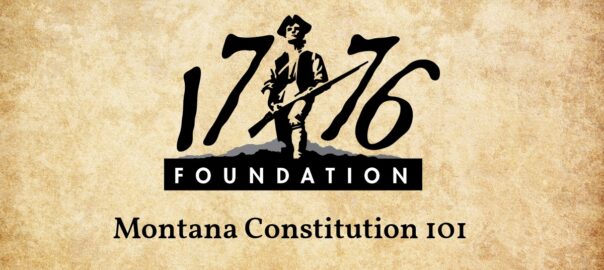In this multi-part series, we take a deep-dive into the Montana Constitution to give a better understanding of what the Constitution says, what it means and how we got here.
Part 3: Declaration of Rights
Article II of the Montana Constitution is dedicated to the Declaration of Rights, which outlines the fundamental rights and freedoms of all residents of Montana. The article affirms the state’s commitment to protecting the dignity and well-being of its residents and serves as a cornerstone of the state’s legal and political framework.
The article begins by acknowledging the importance of individual rights and freedoms and their role in promoting democracy and liberty. It then proceeds to detail specific rights and protections, including the right to freedom of speech, religion, assembly, and petition, the right to bear arms, the right to privacy, and the right to a trial by jury.
Article II also prohibits discrimination based on race, color, sex, religion, political ideology, national origin, or physical or mental disability, and affirms the right to a clean and healthful environment. Additionally, the article recognizes the importance of public education and establishes guidelines for the treatment of prisoners.
It contains strong protections against government secrecy, guaranteeing the public’s right to participation in government and establishes a citizen’s “Right to Know”, guaranteeing the right to examine documents of government entities and public bodies.
The article provides protections for the right to bear arms that go beyond those enshrined in the United States constitution, guaranteeing the right of any person to keep or bear arms “in defense of his own home, person, and property, or in aid of the civil power when thereto legally summoned.”
Additionally, Article II recognizes the rights of victims of crime, including the right to be treated with dignity and respect, the right to notification of court proceedings, and the right to restitution. It also prohibits cruel and unusual punishment and establishes guidelines for the treatment of prisoners.
Overall, Article II serves as an essential component of the Montana Constitution, protecting individual rights and freedoms and promoting the dignity and well-being of all residents of the state.
CLICK HERE to read more from this series
Additional resources:
University of Montana Constitutional Convention Oral History Project
Montana State University Constitutional Convention Oral History Collection
